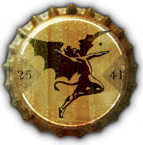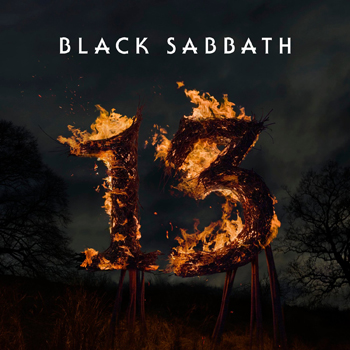I’ve just posted an excerpt from a seriously good interview with Bill Ward sent to me by Joel Gausten. Joel has a book coming out in the fall of 2007 entitled “Albums that Shoulda Changed the World”. He has a very lengthy interview with Bill Ward in the book, but he’s been very gracious and allowed me to publish an excerpt from the book here on this site. Here’s the intro for the interview (which appears here on my site). Bill covers a ton of topics, but spends a lot of time talking about his first solo album, 1990’s “Ward One: Along the Way”. He also talks about the mid 80’s versions of Black Sabbath that Tony Iommi was involved in, his feelings about being in another band, and lots of stuff. Don’t miss it.
I did want to add this personal remark, so there’s no misunderstanding. This interview was done back in November of 2005. It has no bearing on Bill’s recent remarks made about the 2007 “Heaven & Hell” situation. I know Bill recently issued a statement about that, and someone pointed out to me that this interview could be considered an extension of those remarks. It is not. Thank you.
Ward One: Along the Way was Bill Ward’s first solo album after leaving Black Sabbath in 1984. After nearly a decade of battling intense drug and alcohol problems (and, at one point, homelessness), Ward returned with a stellar (and seldom heard) album that featured guest appearances by Ozzy Osbourne, Jack Bruce, Bob Daisley of Rainbow/Ozzy, Eric Singer of KISS and future Thin Lizzy bassist Marco Mendoza. Without question, Ward One remains one of the most musically varied albums ever released. This chapter will include an in-depth discussion of Ward’s solo efforts as well as his ongoing work with the reunited original Black Sabbath. Additional topics will include Ward’s continual work with charities. The chapter will also commentary from Eric Singer, Bob Daisley and members of Ward’s current solo band.
The story behind the creation of Ward One: Along the Way is perhaps one of most striking narratives in music history. Ward, who escaped his humble beginnings in Birmingham, England to achieve global fame in the 1970s as the original drummer in Black Sabbath, found himself entering the 1980s in a haze of mental illness, drug abuse and financial devastation. Upon leaving Black Sabbath following the firing of singer (and best friend) Ozzy Osbourne, Ward found himself panhandling on the streets of Long Beach, California. Following a series of suicide attempts, Ward committed himself to getting sober. Over the course of five years, he overcame his tremendous personal obstacles while assembling an extraordinary cast of musicians for his first solo album. Sadly, Ward may never be seen (or heard) as anything more than the drummer in Black Sabbath, and the music world at large has yet to embrace all that the man has to offer.
Since the release of Ward One, Ward has continued to release solo music and perform with the reunited original lineup of Black Sabbath. Additionally, Ward has donated the profits of his most recent solo release (Straws) to various charities around the world, and remains a strong public advocate for sober, spiritual living. Most important, Ward is also a brutally honest interview subject, and this chapter not only provides an intimate glimpse inside the life of a rock legend, but also serves as a fantastic “from rags to riches…to rags and riches again†story. This chapter provides the first-ever major account of Bill Ward’s life and music outside the world of Black Sabbath. What appears below is merely the tip of the iceberg.

